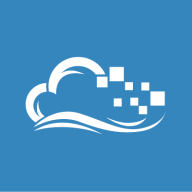


Find out what your peers are saying about Microsoft, Amazon Web Services (AWS), Akamai and others in Infrastructure as a Service Clouds (IaaS).
The value for money is good, and Microsoft Azure has positively impacted our operational costs.
When we use Microsoft Azure, it provides enhanced security from our perspective, though I am not certain about the financial return on investment or benefits for our users as I do not have that information.
Reaching out to them and talking is different from receiving a complete solution to your problem.
Amazon AWS has good technical engineers available, making their customer service reliable.
DigitalOcean support is rated lower than AWS's because we encounter issues more frequently.
Microsoft needs to engage L3 and L2 in support when specified in service tickets.
The support from Microsoft Azure is good.
Regarding technical support from Microsoft, I find they are responsive and helpful, depending on which support package you're on.
The scalability of Amazon AWS is excellent.
Amazon AWS provides strong scalability features, but the scaling process could be made more straightforward.
I have not tried vertical scaling yet, but from the documentation, it seems very easy to scale the system.
Microsoft Azure is not just one product; it is a platform with multiple products within Microsoft Azure, and I would say it is scalable and would rate it a nine.
The scalability of Microsoft Azure is excellent for growth and adaptation, depending on company requirements.
It has different kinds of designs that allow for management and deployment in multi-zones, offering both scalable and non-scalable options.
DigitalOcean is quite stable, and I would rate its stability at nine out of ten.
It is approximately 50 to 60% stable, reaching 60 to 70% depending on usage levels.
We noticed a few critical servers went down due to a Microsoft Azure-end hardware issue.
We are now migrating clients without the zoning into mandatory multi-zone deployments, so if one zone goes down, their application and database remain live.
Microsoft Azure is quite stable, but recent outages and security issues have slightly decreased my confidence.
Amazon AWS could improve its user interface to make it more user-friendly, especially for people who are not highly technical.
When using scripts for APIs to fetch data, they don't match the data exactly with the request.
DigitalOcean could offer a pay-as-you-go model similar to AWS, where I would pay for what I use rather than having fixed payments.
There are issues where even with 8 GB RAM, the performance doesn't meet expectations.
The lack of a proper service provider model ultimately led us to cease operations with DigitalOcean.
Recent outages and security issues are also a concern, causing a decrease in confidence, especially when partnering with third-party companies.
The administrative side is suitable for technical people, but our finance and HR super users find it less user-friendly, as they prefer drag-and-drop features to build their own solutions without contacting IT.
There is still room for improvement in terms of pricing.
After three to four years, if you are not managing it correctly, you will be paying more than an on-premise solution, which applies to all cloud providers, so you must regularly maintain and manage for efficiency.
Currently, Amazon AWS is known to be on the higher price range because popular and in-demand services often come at a premium.
DigitalOcean offers affordable pricing, especially for startups.
Microsoft solutions might be cheaper than some services like AWS, but some solutions may be more expensive depending on the services compared.
Copilot is expensive based on recent pricing for our POC.
They have discounts and also provide promotions for a three-year reservation which comes with significant discounts on the infrastructure part.
Amazon AWS offers flexibility and scalability.
One aspect I appreciate in Amazon AWS is their support team, which is excellent.
The droplet feature is valuable for hosting my applications as it is particularly cost-effective and serves my needs well.
The most significant aspect is that we can connect directly to the system from anywhere.
The team was particularly satisfied with the flexibility of the service and the rules for managing virtual machines on DigitalOcean.
Power BI, another feature of Azure, is extremely elegant and has robust features that support forecasting using R and Python.
If Microsoft gives a report, such as a server performance report in a detailed way, which shows what is consuming more CPU, memory, and disk IO, and network utilization during a particular time, it would be helpful to visualize that information.
What is very interesting in terms of scalability is the automatic possibilities to provision some new machines to be able to absorb the number of users we have in the system.
| Product | Market Share (%) |
|---|---|
| Microsoft Azure | 15.5% |
| Amazon AWS | 16.0% |
| DigitalOcean | 2.1% |
| Other | 66.4% |



| Company Size | Count |
|---|---|
| Small Business | 131 |
| Midsize Enterprise | 47 |
| Large Enterprise | 112 |
| Company Size | Count |
|---|---|
| Small Business | 10 |
| Midsize Enterprise | 2 |
| Large Enterprise | 2 |
| Company Size | Count |
|---|---|
| Small Business | 139 |
| Midsize Enterprise | 53 |
| Large Enterprise | 148 |
Amazon Web Services (AWS) is an adopted cloud platform that offers more than 200 fully featured services from data centers located across the globe. This is a scalable, low-cost infrastructure platform in the cloud that is utilized by thousands of businesses of different sizes around the world. The product offers a wide variety of solutions for its customers, which allows them to launch applications regardless of their industry.
The most common use cases for AWS are:
Amazon AWS supports a global cloud infrastructure with AWS Region and Availability Zone models, which contribute to the high availability of enterprise applications running on the solution. Amazon AWS has an extensive array of products that serve different purposes, including:
The products and services that Amazon AWS delivers to these sectors provide a large computing capacity which is quicker and cheaper compared to building a physical server farm. Among the most popular services are Amazon Elastic Compute Cloud, also known as "EC2," and Amazon Simple Storage Service, also known as "S3."
Amazon AWS Features
The wide array of products that Amazon AWS offers consist of different functions that utilize cloud computing across different sectors. The features of this solution can be categorized in the following ways:
Amazon AWS Benefits
This product delivers various benefits across all industries that utilize its services. The greatest advantages of using Amazon AWS include:
Reviews from Real Users
Greg G., a chief executive officer at a tech services company, ranks Amazon AWS highly, as he states that the solution is flexible, scales well, and offers good stability.
A technology manager technology at a computer software company values Amazon AWS because it is extremely cost-efficient, easy to upgrade and expand storage with greatly improved interfaces.
Microsoft Azure integrates services and offers flexibility, ensuring compatibility with diverse environments. Its scalability, security, and cost-efficient features enhance deployment and management, making it ideal for infrastructure services and application hosting.
Azure provides a comprehensive suite of tools for application deployment, virtual machine management, and data analytics. It allows seamless integration with Power BI and offers a user-friendly interface supported by detailed documentation and technical support. Though users appreciate its capabilities, they sometimes face challenges with costs, setup, and interface complexity, alongside integration and performance issues. Frequent updates and a learning curve are also noted, though Azure's cloud-based security and scalability remain critical for disaster recovery and business continuity.
What are Azure's key features?Microsoft Azure is widely implemented in industries like financial services, healthcare, and logistics for hosting enterprise applications and vital services. Companies utilize its capabilities for IoT applications, DevOps, and Kubernetes clusters, benefiting from its cloud migrations, data analytics, and active directory support.